Children should from the beginning be bred up in an abhorrence of killing or tormenting any living creature; and be taught not to spoil or destroy any thing, unless it be for the preservation or advantage of some other that is nobler.
JOHN LOCKEThe picture of a shadow is a positive thing.
More John Locke Quotes
-





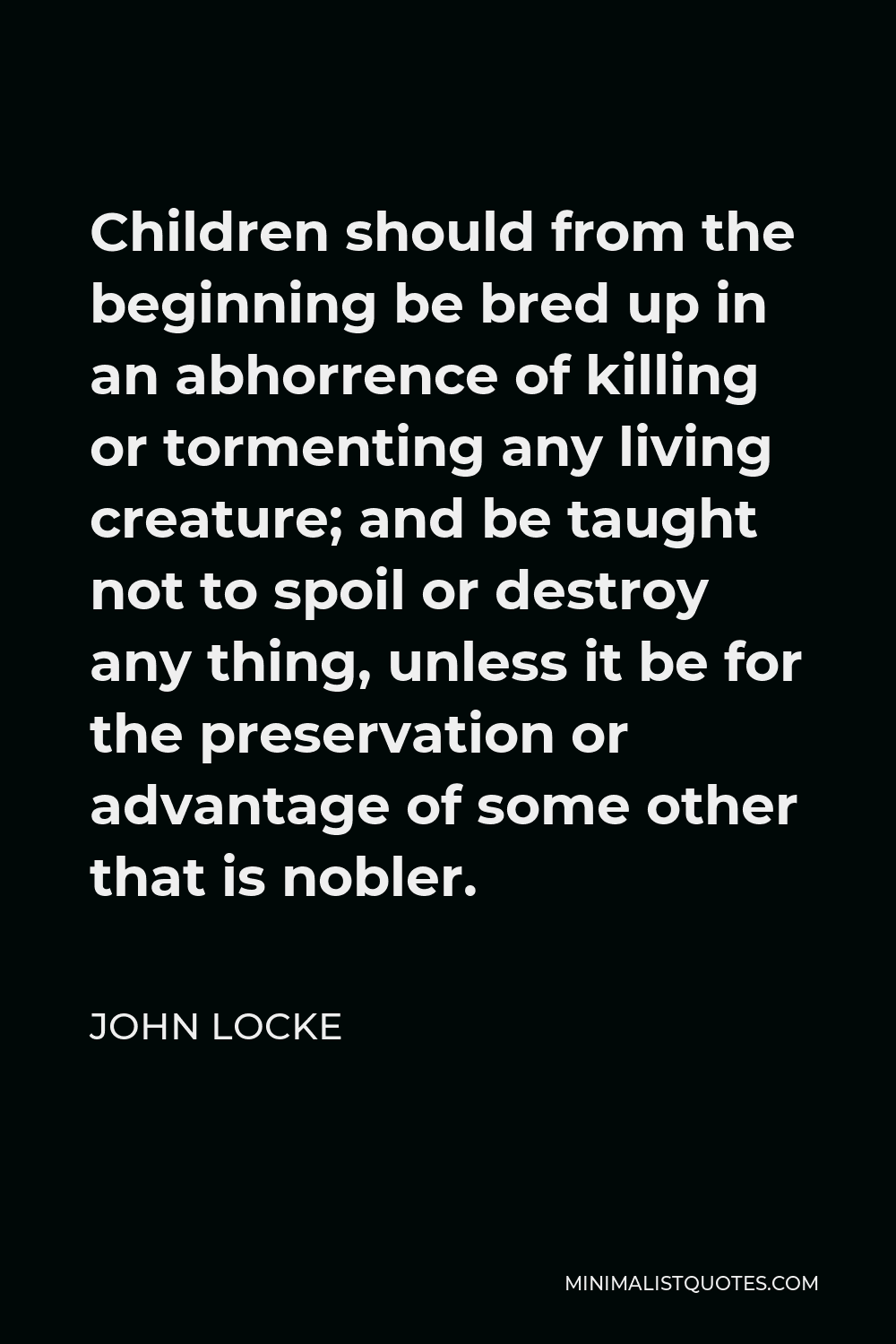
-






Government has no other end, but the preservation of property.
JOHN LOCKE -






Is it worth the name of freedom to be at liberty to play the fool?
JOHN LOCKE -





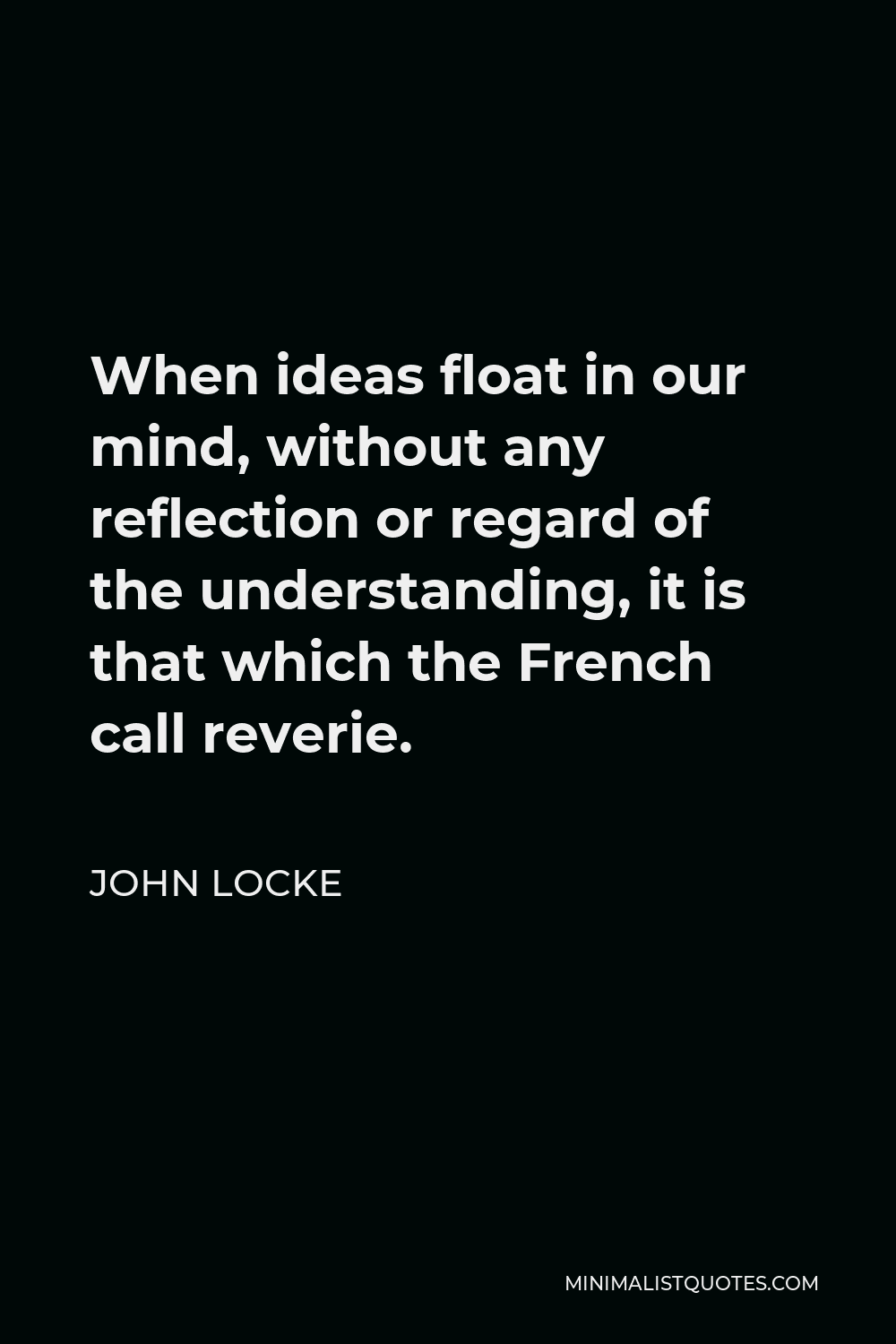
When ideas float in our mind, without any reflection or regard of the understanding, it is that which the French call reverie.
JOHN LOCKE -







I esteem it above all things necessary to distinguish exactly the business of civil government from that of religion and to settle the just bounds that lie between the one and the other.
JOHN LOCKE -





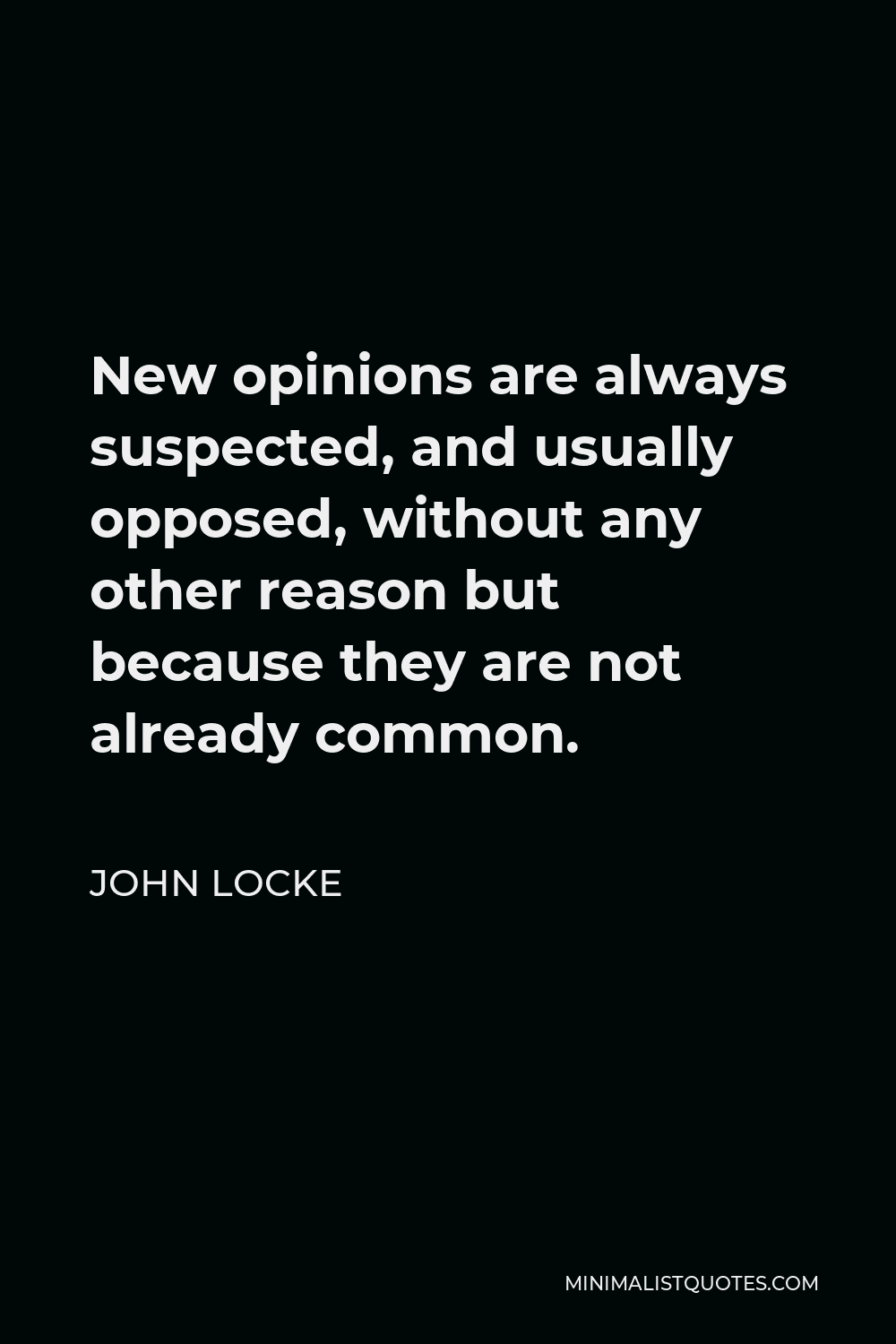
New opinions are always suspected, and usually opposed, without any other reason but because they are not already common.
JOHN LOCKE -







He that makes use of another’s fancy or necessity to sell ribbons or cloth dearer to him than to another man at the same time, cheats him.
JOHN LOCKE -







When the sacredness of property is talked of, it should be remembered that any such sacredness does not belong in the same degree to landed property.
JOHN LOCKE -






Not time is the measure of movement but: …each constant periodic appearance of ideas.
JOHN LOCKE -





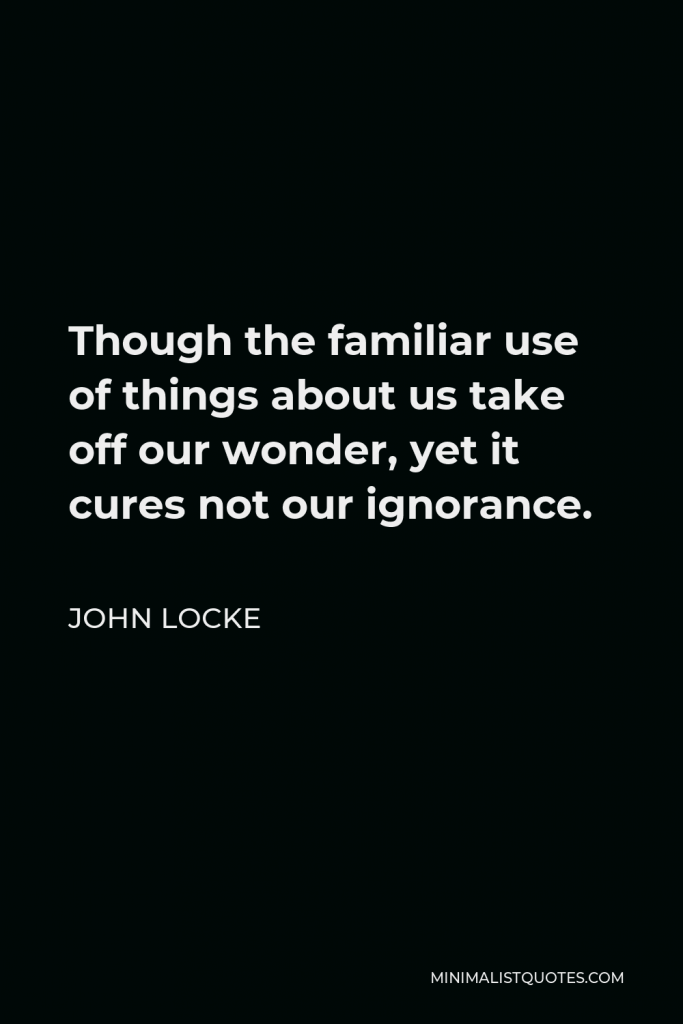

Though the familiar use of things about us take off our wonder, yet it cures not our ignorance.
JOHN LOCKE -







A man may live long, and die at last in ignorance of many truths, which his mind was capable of knowing, and that with certainty.
JOHN LOCKE -






In the discharge of thy place set before thee the best examples; for imitation is a globe of precepts.
JOHN LOCKE -






In the beginning, all the world was America.
JOHN LOCKE -






Whoever uses force without Right … puts himself into a state of War with those, against whom he uses it, and in that state all former Ties are canceled, all other Rights cease, and every one has a Right to defend himself, and to resist the Aggressor.
JOHN LOCKE -







No peace and security among mankind-let alone common friendship-can ever exist as long as people think that governments get their authority from God and that religion is to be propagated by force of arms.
JOHN LOCKE -





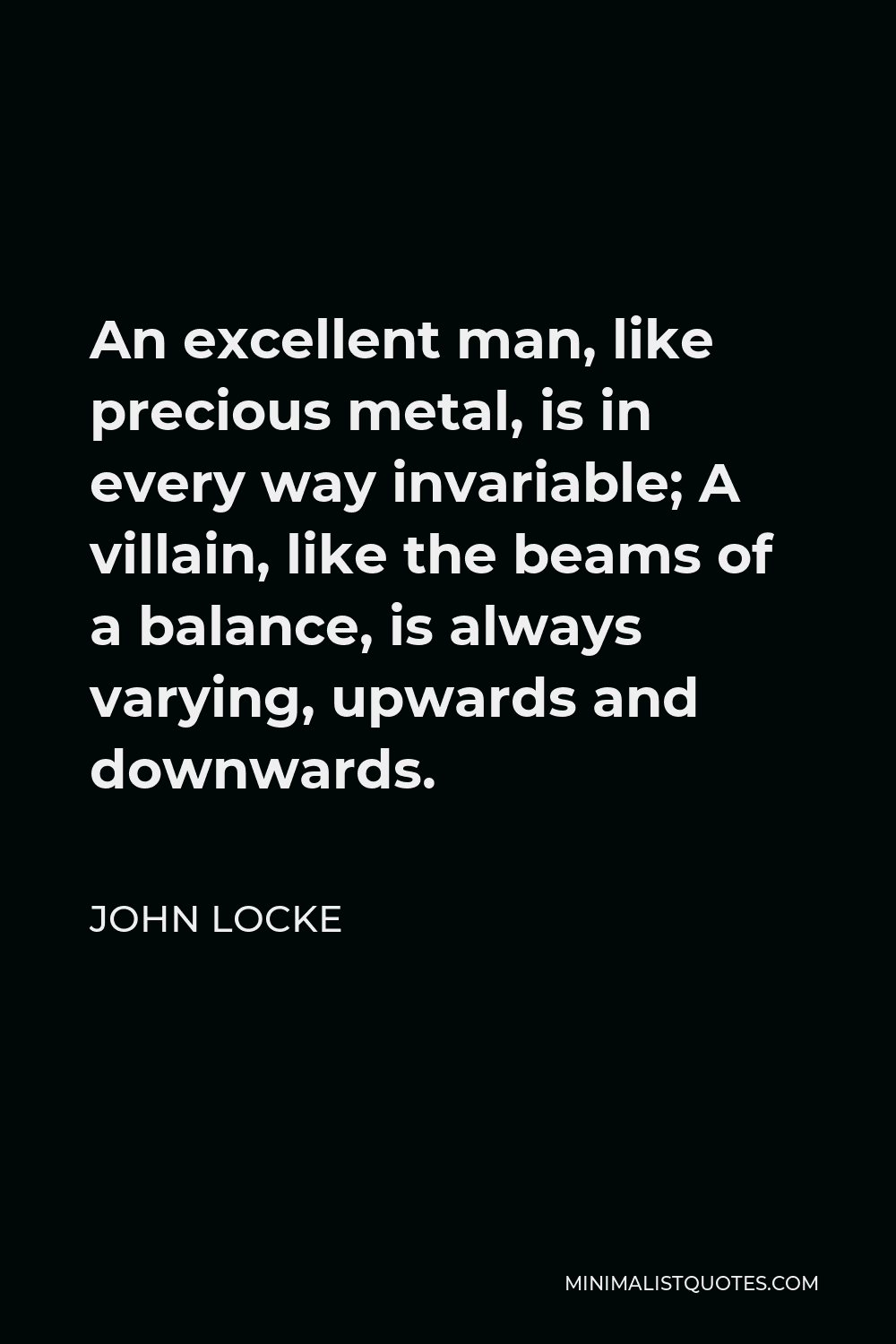
An excellent man, like precious metal, is in every way invariable; A villain, like the beams of a balance, is always varying, upwards and downwards.
JOHN LOCKE







